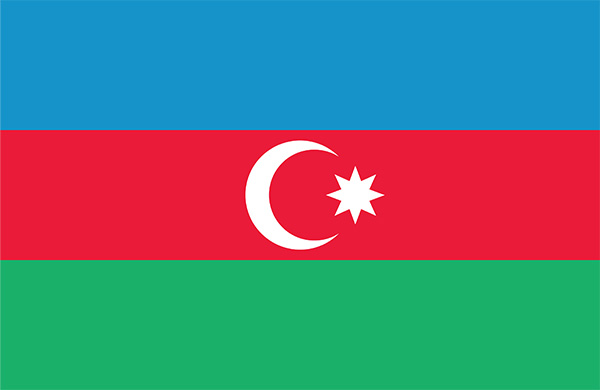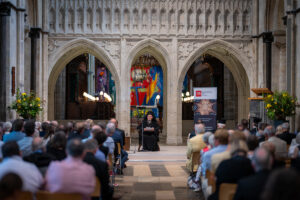The Ottoman government pursued the systematic extermination of 1.5 million Armenians, mostly Ottoman citizens within the Ottoman Empire and its successor state, the Republic of Turkey, as well as over 1,000,000 Greek Orthodox Christians in the early twentieth century. Hundreds of thousands of people were forcibly converted to Islam. To this day, the Turkish government refuses to acknowledge this atrocity as a genocide, saying that it was simply a religious conflict between Christians and Muslims.
Now Armenians fear the worst: “To educated observers and the victims themselves, this year’s aggression has all the markings of an ongoing Christian genocide,” as is evidence by Azerbaijan’s targeting of churches.
As we continue to see the Ecumenical Patriarchate and our Mother Church of Constantinople suffering from religious persecution, and note with sorrow the persecution of Christians in the Middle East and elsewhere today, and pray that this crisis will pass peacefully and that such inhumanity will never again be seen anywhere in the world.
“Experts: Armenia-Azerbaijan Conflict Is Christian Genocide Under the Pretext of War,” by Victor Gaetan, National Catholic Register, November 16, 2020:
Under the cover of a global pandemic, benefiting from U.S. self-absorption during the presidential election, a battle that raged for 44 days against a compact community of Armenians — some 150,000 people territorially enclosed by Azerbaijan — has ended.
The region under siege is widely known as Nagorno-Karabakh, but its citizens voted to call it the Republic of Artsakh in 2017.
Describing it as an “unspeakably painful agreement,” Armenia’s prime minister signed a peace deal Nov. 9 with the aggressor, Azerbaijan. In Yerevan, Armenia’s capital, people responded by rioting in Parliament, while people danced in the streets in Baku, Azerbaijan’s seaside capital…
To educated observers and the victims themselves, this year’s aggression has all the markings of an ongoing Christian genocide: initiated by Ottoman Turks in 1895; intensified by the Young Turk Movement between 1915 and 1923; continued against Greeks in the 1950s; and now reignited as part of Turkish President Recep Tayyip Erdogan’s dream of restoring Ottoman power and territory.
Evidence of genocide is especially petrifying to the Armenians because it suggests Azerbaijan and Turkey will not stop until they’ve “cleansed” this cradle of Christianity of its indigenous people.
Proof of the connection is startlingly overt: When Azerbaijan dropped a bomb on Oct. 8 through the dome of Shushi’s Holy Savior Cathedral (known to Armenians as Ghazanchetsots), one of the largest Armenian churches in the world, they targeted a sacred place damaged in the notorious 1920 attack when Azerbaijani soldiers set the Armenian half of the town on fire, killing, raping and driving out its inhabitants.
This past is hidden, and the intentional obliteration of Armenia’s Christian culture denied, by the powerful family that has controlled Azerbaijan for two generations, the Aliyevs….
Asked about Turkey’s motives, American Enterprise Institute defense analyst Michael Rubin is blunt: “primarily, animus toward Armenians as a people and Christianity as a religion.”
Rubin told an IDF news conference that Erdogan has no historical claim to Artsakh and no security excuse for fomenting war. Besides being anti-Christian, his motives are political and nationalistic: “Turkey is on the warpath, and it will get worse as Erdogan deflects attention from his failing economy and nears the anniversary of the Turkish republic” founded in 1923.
Aram Hamparian, executive director of the Armenian National Committee of America, summarized, “What’s at stake here is Erdogan trying to finish the work of 1915.”
Recounting the Armenian peoples’ losses at Turkey’s hands as “two-thirds of our people and nine-tenths of our territory,” Hamparian reframed the current situation in the South Caucasus as “not a conflict but a crime,” requiring a swift response from the West.
A representative of the Greek American community agreed. “We’re approaching the centennial of a republic built on the bones and blood of Christian minorities. Today, Artsakh is an inconvenience to Turkey’s idea of dominance in the region,” said Endy Zemenides, executive director of the Hellenic American Leadership Council….







